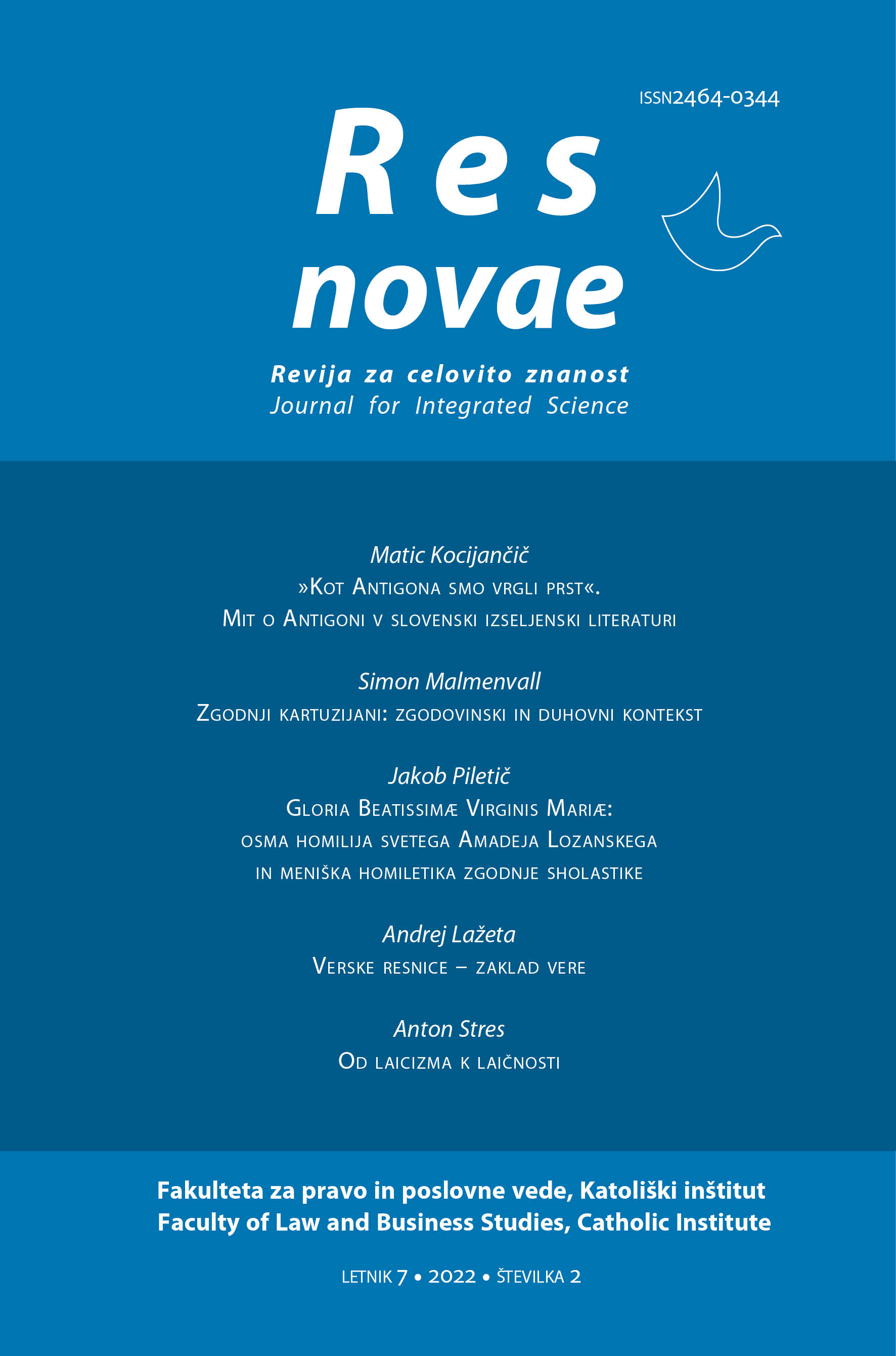Early Carthusians: Historical and Spiritual Context
Simon Malmenvall
Early Carthusians: Historical and Spiritual Context
DOI: https://doi.org/10.62983/rn2865.22b.2
Key words: Carthusians, monastic movements, medieval ecclesiastical history, Gregorian reform, Catholic spirituality
Abstract:
This article is dedicated to the historical and spiritual background of the initial period of the Carthusian order in the eleventh and twelfth centuries. The emergence and development of the mentioned order, together with its spiritual principles and ascetical practices, is placed within various mutually intertwined contexts of the time: individual originality of Saint Bruno, the founder of the Carthusians; structural preconditions in the Catholic Church (the so-called Gregorian Reform and monastic revival); internally coherent modes of communication characteristic for Carthusian spirituality (intersection of silence, oral tradition, and dedication to sacred texts). The main thesis of this article is the following: on the one hand, the Carthusians emerged as one of the monastic movements in a period when various ecclesiastical leaders sought to re-establish the original Christian spiritual and moral rigor lived out in new social circumstances; on the other hand, the order under discussion remained faithful to its founder, emphasizing detachment from the world, and has never grown into a mass or leading movement in the Catholic Church.
PDF



